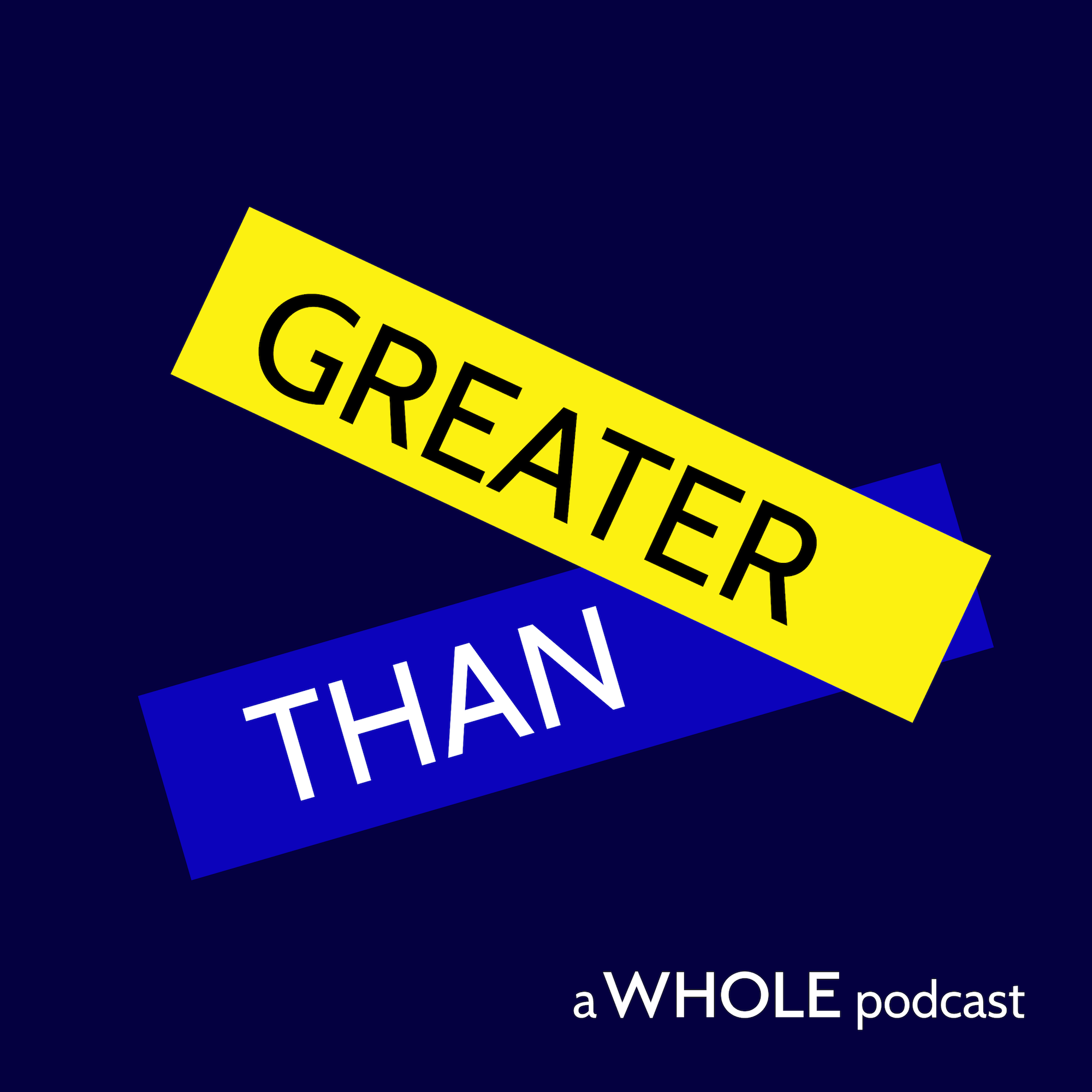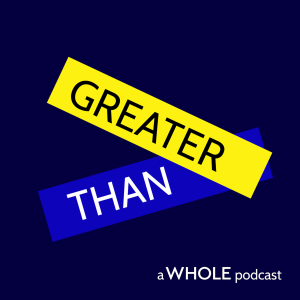
790
Downloads
10
Episodes
The impacts of our businesses are often greater than the sum of our intentions. At a time when expectations of businesses are evolving, the HOW of business is more important than ever. In these episodes, Host Lauren Sinreich talks with business leaders about methodologies that uncover power dynamics, new ways of identifying effective metrics, creating the conditions for achieving more rather than just doing more, the most critical skills organizations need moving forward, how values are now a competitive advantage, and a range of other topics that guide entrepreneurs and intrapreneurs as we create the world around us through our businesses.
Episodes

Friday Apr 23, 2021
Friday Apr 23, 2021
Jennifer Brandel is Co-founder of Hearken, a people powered process and technology that enables organizations to better engage and collaborate with their stakeholders, as well as the Co-Founder of Zebras Unite, a network creating a more ethical, inclusive and collaborative ecosystem for mission-based startups. For her work in journalism and entrepreneurship, Jen won the prize for “Best Bootstrap Company” at SXSW and won the News Media Alliance Accelerator Prize. She received the Media Changemaker Prize by the Center for Collaborative Journalism, was named one of 30 World-Changing Women in Conscious Business, is a Columbia Sulzberger Fellow, an RSA Fellow, AND a member of the Guild of Future Architects and the National Civic Collaboratory. Jenn and I talk about building a values-based business, why process should come before product, alternatives to the unicorn model, so much more:
- How combining the philosophical underpinnings of business and working with the Bahai faith taught her an effective way to impact journalism and plant the seed for starting Hearken
- How changing the process of reporting fundamentally changed the dynamics and results of the newsroom
- Why and how Hearken preserved optionality as it has grown over the past five years, and the options that are opened by maintaining sole ownership
- The zebra company as her response to her disillusion with the silicon valley model and exponential growth and monopoly market
- Why engagement is a strategic business model, and how Hearken is thinking about a more relational engagement model that expands possibilities for peoples lives
- How Hearken approaches helping companies transform, and why they focus both on what is being left behind and what is newly being built
- How Hearken designed a system with different moments of feedback loops at major decision making moments and how they deliberately think about the dynamics they create for 1:1 and 1-to-many interactions
References and resources:
- Zebras Unite
- You are more powerful than you think: A Citizen's Guide to Making Change Happen by Eric Liu
- Community Centered Journalism: Engaging People, Exploring Solutions, and Building Trust by Andrea Wenzel
- Design Justice Network
Select highlights:
- "Just by tweaking the process of how news stories got made, we ended up creating a different sounding and differently consequential journalism. Other newsrooms started asking us about it, and I knew I would regret not trying to help others make it work, because I do think it is universally applicable process that makes the world a little bit better."
- "I feel like what we're trying to do is maintain the mission, and the money follows if you center the public. But the operations and the way the operating systems of news rooms have been set up is completely counter to this, so the work of doing this change while it might sound so simple on the surface is surprisingly more challenging because of the way they're optimized for speed, efficiency and distribution, not for listening, relevance and trust. So, there are a lot of changes that need to happen inside an organization first on a mental paradigm level, and then a workflow and tooling and schedule and business level. This tiny idea ends up changing a lot."
- "I ran into the tension of what seemed like the Silicon Valley pattern recognition and it felt inherently impossible to build the kind of company I wanted to in that value system in place and that structure. If I want to build a company that lasts a long time and has these kinds of structures, why am I focusing all my time on making a small group of people very wealthy who aren't who I'm trying to serve with this work? I was always pushing back on the 10x unicorn model, but I didn't have the language for what I wanted instead.
- "That was a tension that was hard, just the tradeoffs along the way of trying to find aligned financing and again hearing people say 'We'd invest in you if you only tweaked it this way or that way,' knowing that that would actually compromise our values. It's hard to walk away from money but we really have figured out that who you get the money from and what it's designed to do is so important, and it's better to say no if you have that option."
- "It was a real gold rush mentality, and folks really glommed onto one or two narratives of how you could strike it big. Then that just became everything that people were chasing, and then forgot the fact that our economy and country are built on these more steward-owned models in which family or generational companies are growing incrementally over time."
- "It all comes down to human nature. It's not something that is going to change. People are always going to be curious, they're always going to have questions, they're always going to need other people to help fact check and understand the complexity of any situation to make it digestible and easy to understand what to do. Those things are never going to change, and I feel positive about any system that's built on human nature fundamentals designed for the most productive version of ourselves, versus the most destructive tendencies that we have. And that's what I feel we have with our public powered process and tech."
- "I think it's all about discerning what are the dynamics that make for the best outcomes for everybody."
- "There's different network design built for different purposes and I think its really thinking through what's the most productive and what's going to yield the most positive responses for everybody."
- "The more people are involved, the more they get to see their voices mattering and shaping things and the change they want to see happening the more likely that are to support you and trust you. So many institutions don't have this connective tissue."
- "People first, going into process, and then product is the final layer. It's easy to start with product because it's tangible, where process is more abstract and requires more mental bandwidth. That's part of it, convincing people the process innovation, which is hard to wrap your head around, is so much more important than what products you're using."

No comments yet. Be the first to say something!